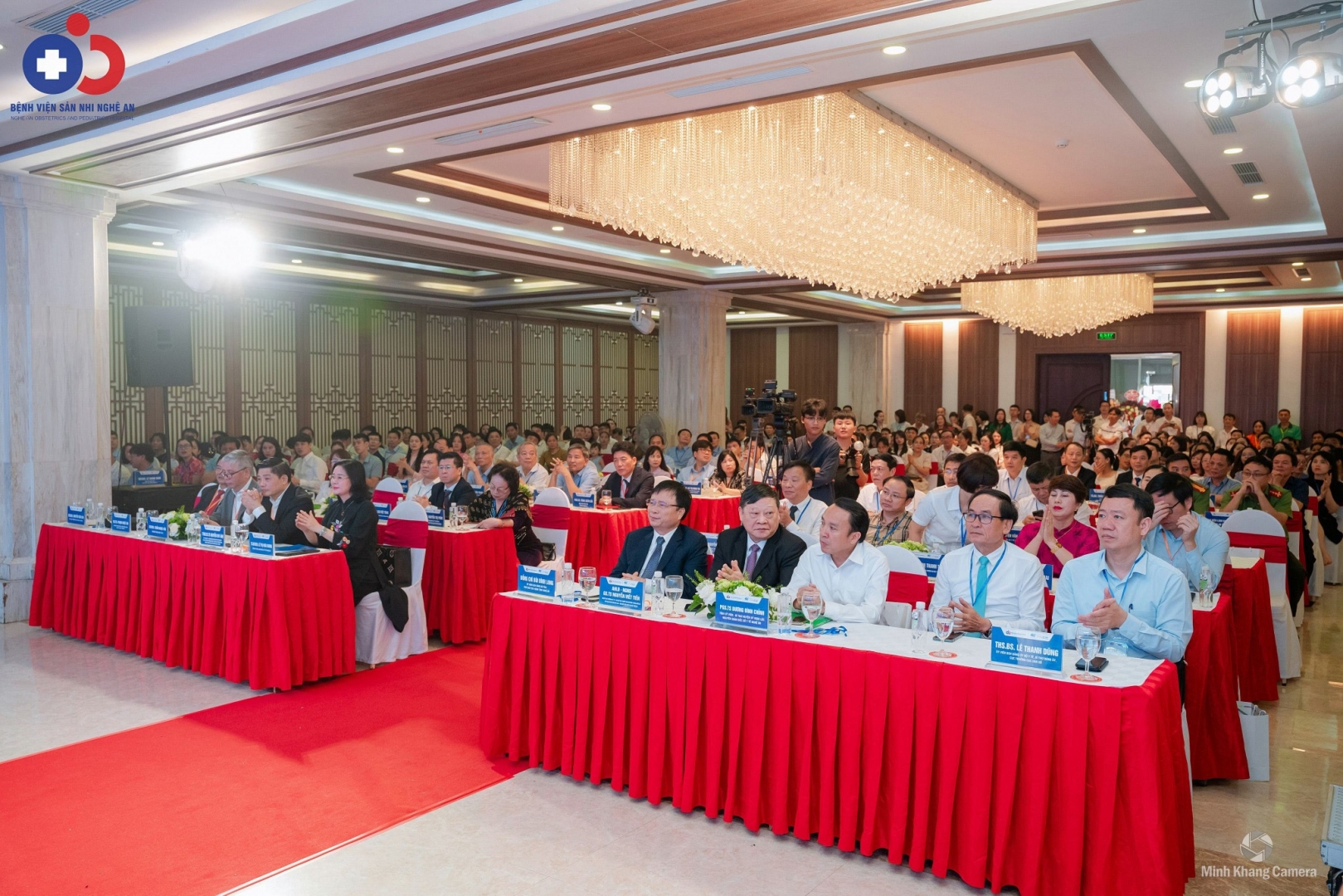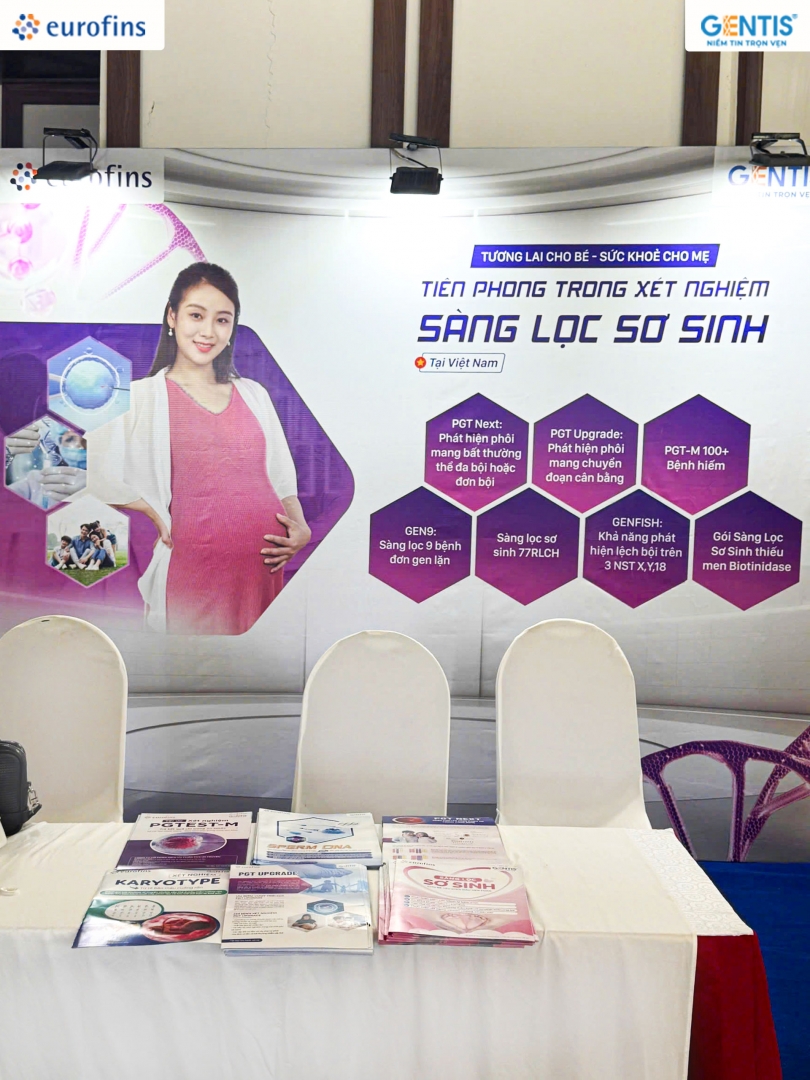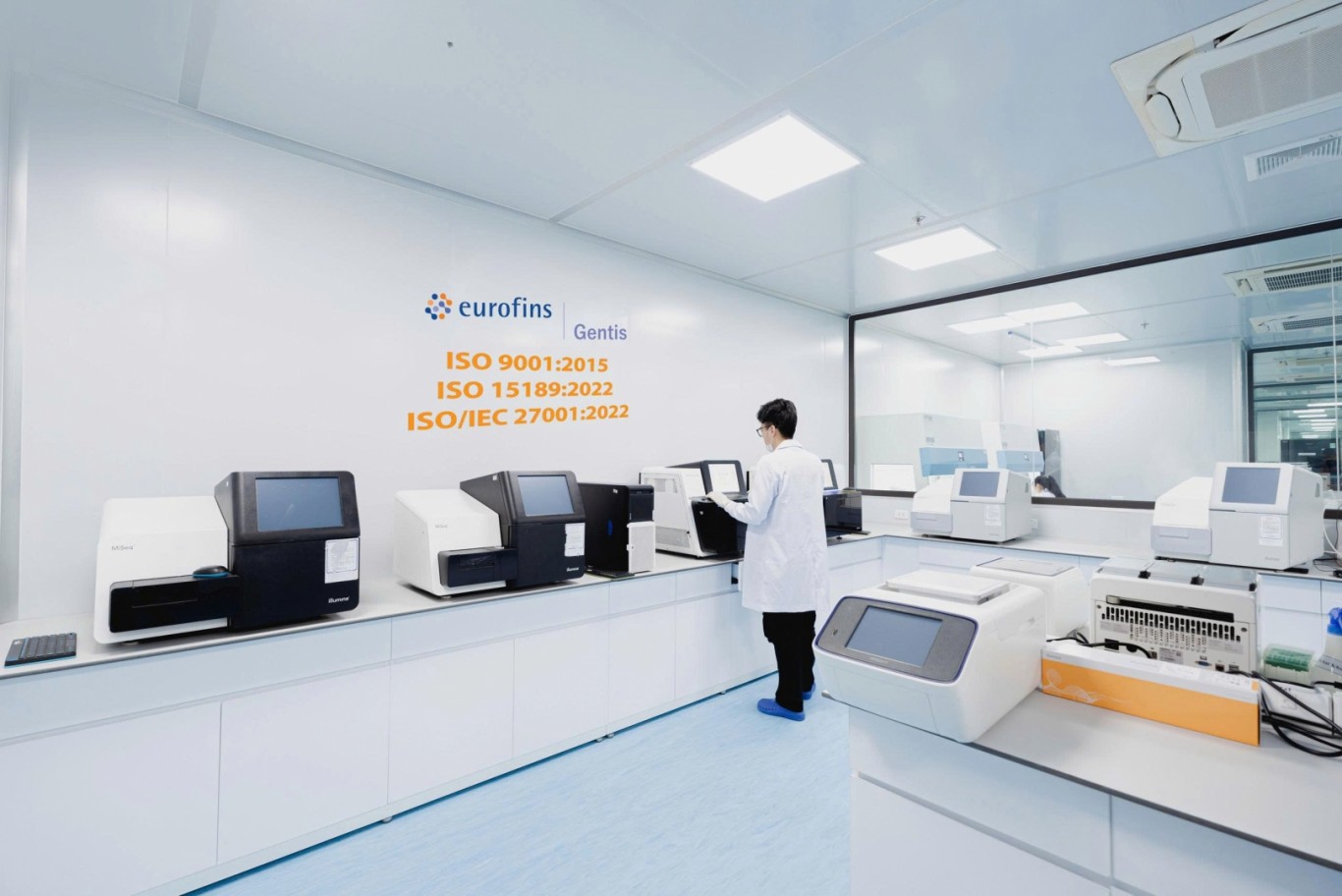
At this year’s Obstetrics and Pediatrics event, GENTIS introduced a wide range of advanced genetic testing methods to the conference, including GEN9, 77 IEMs, biotinidase deficiency screening (SLSS), and notably, three new PGT packages: PGT-M for over 100 rare diseases, PGT NEXT, and PGT UPGRADE.
One of the standout features of the PGT-M 100+ test at GENTIS is its ability to detect more than 100 monogenic (single-gene) inherited disorders with high accuracy. By applying next-generation sequencing (NGS) technology in combination with family-specific marker design, PGT-M 100+ can precisely identify even the smallest DNA variants—factors that could potentially lead to disease. This allows the identification of embryos free of disease-causing genes, increasing the chances of a healthy baby. In addition to cutting-edge technology, the PGT-M service at GENTIS is supported by a team of experienced genetic counselors who provide comprehensive guidance before, during, and after testing.
PGT NEXT is a preimplantation genetic screening method that detects aneuploidy across all 24 chromosomes and identifies chromosomal segmental gains or losses. It can also detect embryos with polyploidy or monoploidy—conditions often excluded due to suspected fertilization abnormalities (such as 0PN, 1PN, 2.1PN, 3PN). By analyzing the entire genome with NGS and SNP genotyping, PGT NEXT increases the accuracy of chromosomal abnormality detection and ensures correct kinship identification among embryos in the same batch, thereby minimizing the risk of sample mix-ups due to handling errors.
PGT UPGRADE is an advanced version of preimplantation genetic testing, capable of detecting aneuploidy across all 24 chromosomes and identifying segmental chromosomal abnormalities larger than 5 Mb. Notably, this test can also detect balanced translocations—genetic abnormalities that may be inherited from either parent, which do not necessarily manifest as disease but can affect reproductive health in future generations. PGT UPGRADE provides in-depth genetic information, helping to optimize embryo selection and increasing the chances of successful pregnancy and healthy offspring.
GEN9 is a pre-marital or pre-pregnancy genetic screening test that detects 9 autosomal recessive genetic disorders, including: Alpha-Thalassemia, Beta-Thalassemia, G6PD deficiency, Phenylketonuria, Galactose metabolism disorder, Citrin deficiency-related jaundice, Pompe disease, Wilson disease, 5-alpha reductase deficiency type 2, and Fabry disease. GEN9 evaluates the risk of parents passing on genetic disorders to their children and provides reproductive support to eliminate disease-causing genes.
The 77 IEMs and SLSS biotinidase deficiency tests are two critical newborn screening methods performed shortly after birth to detect congenital disorders early. The 77 IEMs test identifies over 70 different metabolic disorders, including amino acid, fatty acid, and organic acid metabolism disorders. Meanwhile, the SLSS test detects biotinidase deficiency, a vital enzyme in biotin metabolism. Both tests play an essential role in identifying conditions that may not present obvious symptoms initially. Early diagnosis allows timely medical intervention, reducing the risk of severe complications and improving newborn health outcomes.

The GENTIS exhibition booth attracted significant attention from delegates and attendees. At the booth, doctors’ questions regarding GENTIS genetic testing services were thoroughly and clearly addressed. Notably, healthcare professionals expressed high appreciation for GENTIS’s genetic testing solutions in the field of obstetrics and pediatrics.
Through this event, GENTIS hopes to continue partnering with doctors, specialists, hospitals, and clinics on the journey to make accurate, timely genetic testing more accessible to Vietnamese people. With a mission to contribute to improving the physical and intellectual well-being of the Vietnamese population, GENTIS is committed to continuously updating, researching, and developing genetic testing services to enhance the quality of screening and healthcare in the community.











